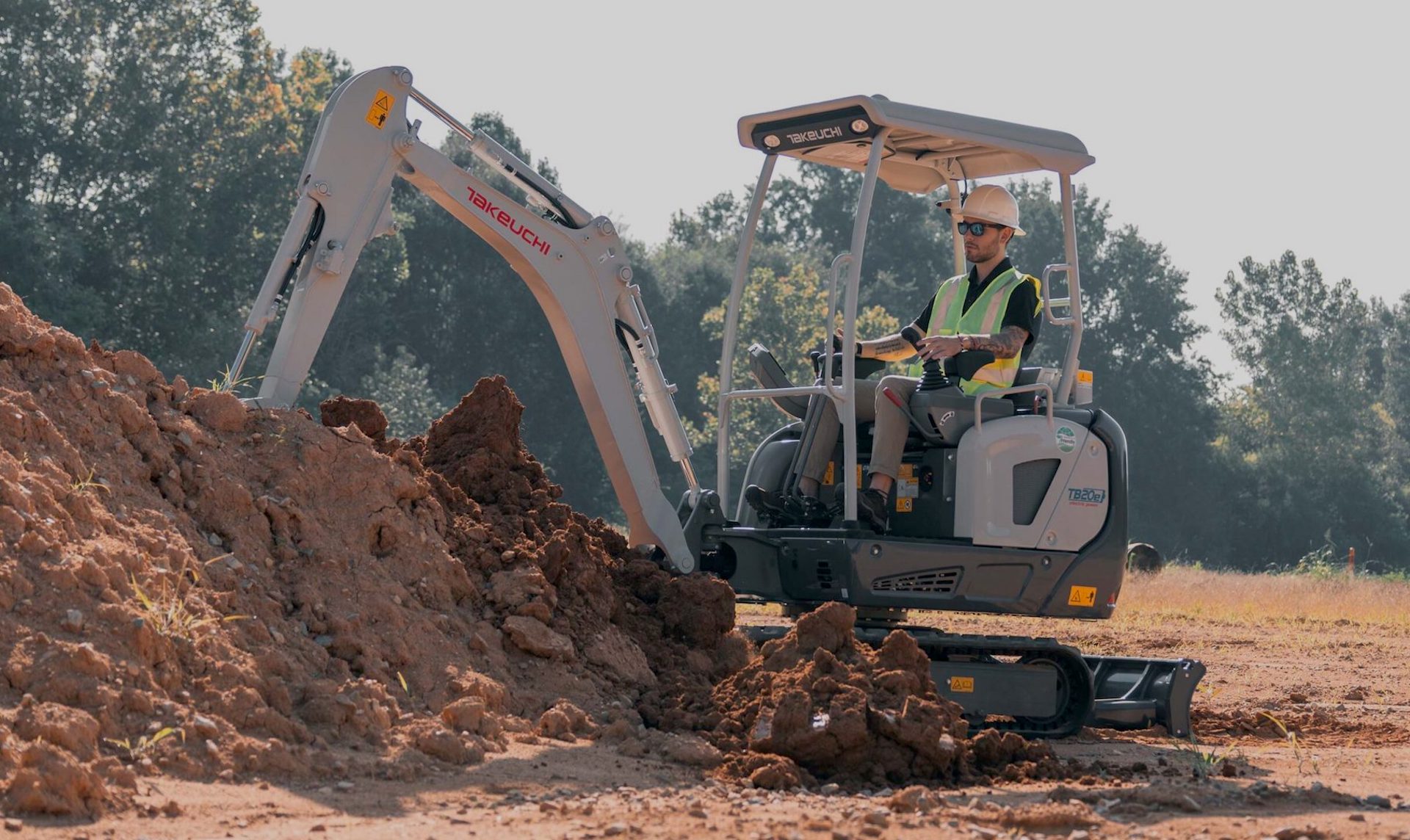Construction is a booming industry in Australia — but it's also a large contributor to planet-warming pollution in the country, accounting for 18.1% of the nation's carbon output, according to The Conversation.
However, some experts believe the country can achieve net-zero pollution by 2040 if it follows a guide outlined by researchers from the University of New South Wales.
One sure way to reduce pollution from the sector is to remove diesel-powered construction vehicles from the equation whenever possible. As Electrek reported, a solution has now shipped to the country.
Heavy equipment sales and service group Semco has just received one of the country's first electrically powered compact excavators that's said to provide about eight hours of operation on a single charge. It can also continue to operate while plugged into its onboard charger, and it can get an even speedier charge from the optional offboard version.
The TB20e is the first electric model from Japan-based manufacturer Takeuchi, which focuses on compact construction equipment. According to its website, the company seems excited about its new, greener product.
"The beauty of the TB20e is that it is a zero-emission and low-noise-level compact excavator with the same performance features and capabilities as diesel-powered machines in the same class."
Noise pollution certainly affects the quality of life for people near construction sites, and diesel, one of the most common fuels for heavy construction vehicles, is notorious for producing carbon dioxide as a byproduct, pulling lots of oxygen from the air in the process.
Back in the U.S., studies have shown that diesel fuel consumption accounted for 25% of the carbon generated by the transportation sector and 10% of the country's total energy-related emissions.
The Takeuchi TB20e addresses both of these issues with aplomb and can be a boon for the Australian construction industry if it increases the adoption of these new, greener machines.
As one commenter on Electrek pointed out, electrically powered construction vehicle adoption may be on the upswing and can solve two problems at once.
"[The] other thing about heavy equipment news from the AU is that many mineral miners are converting equipment to battery-electric from diesel. Mines are often located in far off remote locations where every drop of fuel has to be transported to the site... on site solar or wind generation is taking diesel's place."
Even when electric power isn't enough for massive, heavy-duty vehicles, there are initiatives to curb the dirty output from diesel engines. Right now, the engines need to adhere to EPA emission standards in the U.S., but existing ones can be retrofitted to be cleaner for the environment.
A new startup called ClearFlame has another solution: ethanol. The company aims to use biofuel to power heavy equipment, with less pollution as a result. And some heavy-duty consumer vehicles don't even need to run on dirty oil derivatives, as shown by the success of the F-150 Lightning, even among gas-guzzling aficionados.
Converting our construction fleets to electric versions or more Earth-friendly biofuel-powered ones can get us a long way toward net-zero pollution goals, especially in Australia.
Professor Deo Prasad, lead researcher of the UNSW guide, has high hopes for the initiative and the planet, saying, "This guide provides a deeper level of knowledge on how this sector can rapidly move towards net-zero carbon buildings in the short term. Using science-based evidence and analytics, the guide maps a clear roadmap to achieving net zero by 2040 in the building industry. It goes beyond the aspirational and into the achievable."
Join our free newsletter for weekly updates on the coolest innovations improving our lives and saving our planet.









